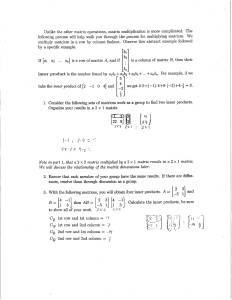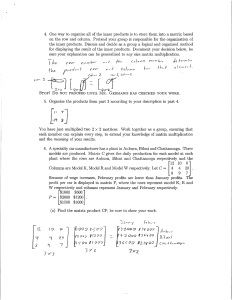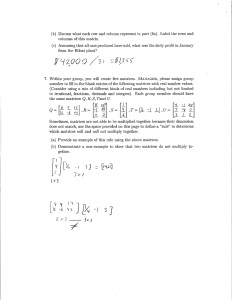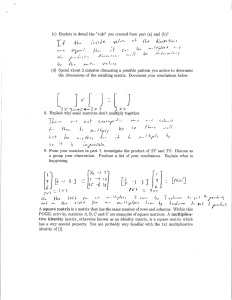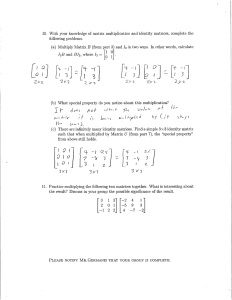P1 – Practice intentional inquiry and planning for instruction. This means that classroom teacher plans instruction around a learning target and creates a lesson which encourages students to critically think about the function of the learning target. Within the realm of mathematics, students should build intuition around how mathematical processes and can therefore build from current understandings to unique situations in the future. For a teacher, building this intuition must be well planned.
In the images, I’m presenting the work of a group of students who completed a group inquiry activity that was monitored me. While POGIL (Process Oriented Guided Inquiry Learning) activities are highly structured and I lack the training to adequately design a true POGIL, this is my best attempt at guiding students through mathematical concepts using discovery as the motivator for the lesson. This POGIL is about matrix multiplication, the purpose of this activity was to build on their prior experiences of matrices, create intuition about mathematical practices, and assist students in making meaning behind matrix multiplication. Many students know the procedure, yet few understood how this process was applicable in the real world.
This classroom activity was built and designed by me, although I used a textbook to find problems with student interest in mind and adapted the questions to fit my instructional goals. Since this activity was designed by me, this demonstrates I am able to ask students good questions which lead to conceptual understanding. This also shows my ability to plan for 100 minutes of instruction and facilitate an activity, probing students for more advanced thinking.
While planning this activity, I learned about how challenging it is to create clear questions which lead students to understanding of the learning targets. Since I teach multiple sections of the same course, after each class, I revised my questions to ensure each question challenges students and leads them to more complete understanding of matrix multiplication. Students also state they enjoy the POGIL’s as a learning activity. Students get to work in groups and ask questions to their peers. Providing group based activities, students break the routine of back to back 100 minute learning segments. Additionally, this provides students the opportunity to practice new skills without the traditional “drill and kill” of many math classroom. Practicing with inquiry also helps students create meaningful understanding rather than the process of symbol manipulation alone.
When designing lessons, it may be useful within my lesson plans to prepare questions each day which probe at the students understanding. Also, I think that creating a classroom goal everyday (and actively writing it down in the lesson plan) will help lead to a meaningful result from the lesson. With a goal like “Students can understand the meaning and operations of matrix multiplication,” I can create quality lessons, ask questions which probe for understanding, and measure the effectiveness of my lesson.

